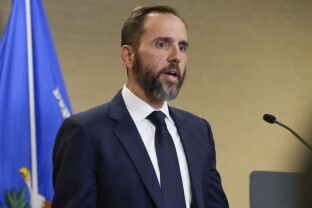The Department of Justice filed a superseding indictment against Donald Trump in Washington, D.C., keeping the four central criminal charges against the former president accusing him of election interference but focusing on the actions of his campaign after the Supreme Court put the original case in doubt.
DOJ special counsel Jack Smith on Tuesday opted to zero in on the actions Trump took as a candidate seeking to remain in office — rather than base it on his use of power as president. This followed a recent Supreme Court ruling that granted Trump an expansive new definition of presidential immunity and forced prosecutors to seek ways to salvage the criminal case.
While the first indictment said Trump “repeated and widely disseminated” lies about voter fraud intended to deny Americans their right to a fair election, the new indictment says “the defendant used his campaign to repeat and widely disseminate them.”
